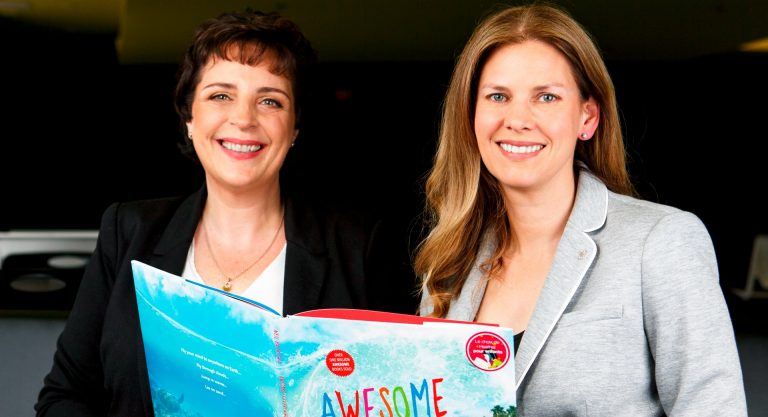Concordians team up to investigate literacy in children and parental influence

How does parental involvement influence how children learn to write?
Two education researchers from Concordia’s Faculty of Arts and Science have teamed up to study the subject.
Professor Sandra Martin-Chang and Aviva Segal, a lecturer also in the Department of Education, have been researching how children learn to read for some time. Both are members of the Concordia Literacy Lab. They worked with research assistant Shaneha Patel on a recent paper, “You Used the Right Word for the Right Sound!” to take a different look at the subject.
“There’s really been a lot of research regarding the knowledge that teachers have and how they impart that knowledge to kids in order to optimize their development,” Segal says.
She joined the lab with an interest in parent knowledge with young children. Over time, the team became increasingly interested in how parents can influence their child’s literacy versus focusing only on teachers. They produced several papers on the topic before coming up with their latest idea.
“We said, ‘Hey! Let’s hit it out of the park here!” Segal recounts, laughing.
Their study involved examining parental feedback in two different contexts. In one, parents were asked to look at an invitation written by a kindergartener without their children. Then, they worked together to write a card with their own child. The reading and spelling abilities of the children were also measured.
‘Parental knowledge and positivity go hand in hand’
The team looked at how parents spoke to their young children when writing a thank-you note. They were able to demonstrate that parents who knew more about speech sounds, spelling patterns and other nuances of the English language were better able to support their child’s literacy development, especially when it came to phonemic awareness (matching sounds to letters).
“When you're working with parent–child subjects, there's genetic overlap,” Martin-Chang explains.
“So, if you get parents that give really excellent feedback, you don't know if it's because the children are doing excellent work or just because of that genetic overlap.” Hence the need to see how parents reacted to a writing sample from a child other than their own.
In the end, results showed parents with a finer-tuned ear for the English language (better able to count sounds in words) and better knowledge of written language (more at ease finding irregularly spelled words) provided feedback that was more positive and constructive in both scenarios.
Martin-Chang and the Literacy Lab team look forward to where this research will take them next.
“Parental knowledge and positivity go hand in hand. We were really, really excited about the findings.”
Learn more about the Concordia Literacy Lab.
Read Segal, Martin-Chang and Patel’s recent paper “You Used the Right Word for the Right Sound!”


